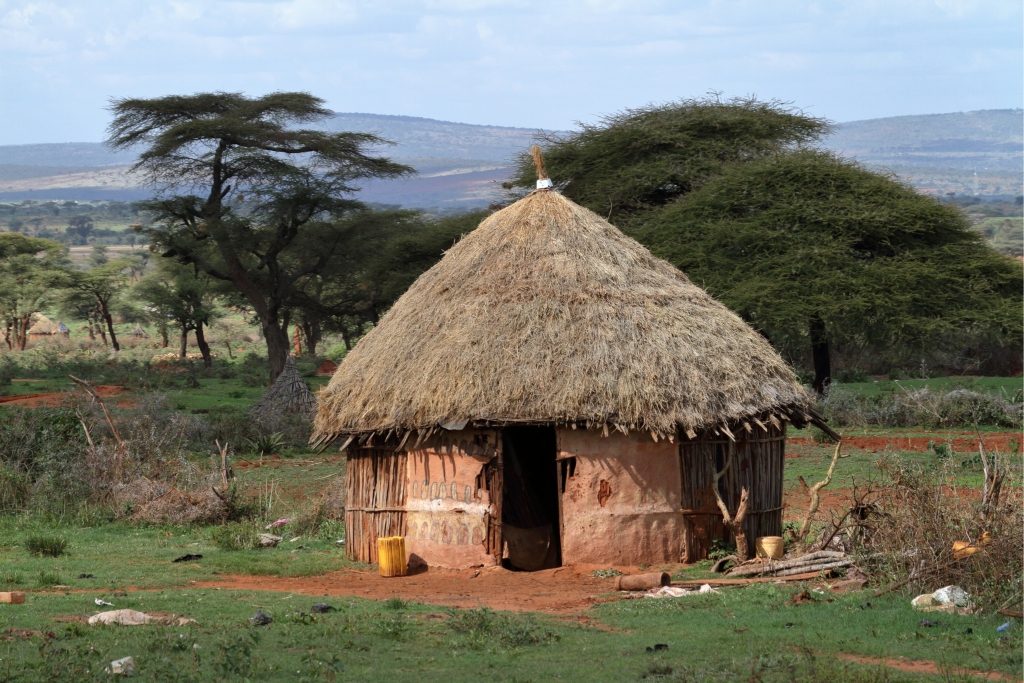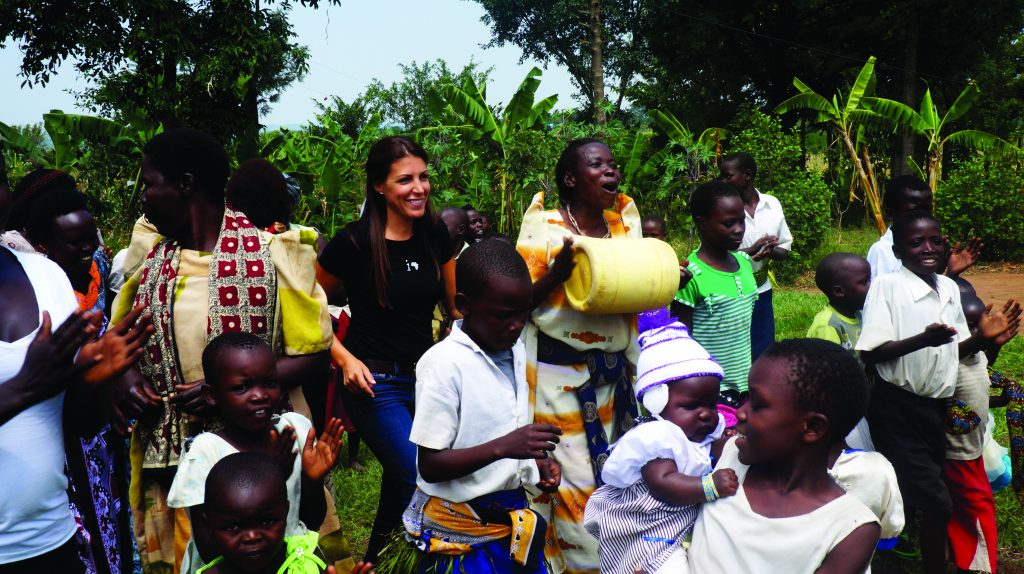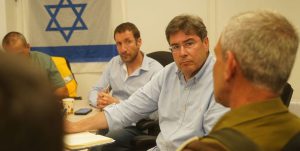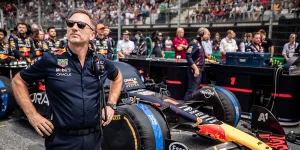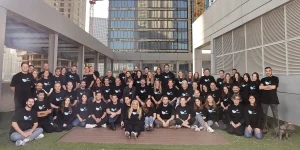“It’s very simple, very cheap and it changes lives.” With these simple words, Sivan Yaari summarizes her foundation titled Innovation: Africa, which she founded eight years ago, providing electricity and water to Africa through the use of Israeli technologies.
Yaari, 38, first arrived in Africa when she was only 20, on a business trip for the company, Jordash, (belonging to the Israeli Nakash brothers) where she worked. “I arrived in Madagascar and witnessed people waiting in hospitals without receiving proper care. I also noticed that there weren’t many children attending schools. I tried to understand why this was happening.” She discovered that there were no refrigerators in the clinics, so there was no medicine and no vaccinations available for patients. The reason: no electricity. “Then, I saw people and children looking for water, physically digging for it with their hands, because the water is underground, and in order to get to the water they have to pump it out. But in order to pump it out, they need electricity. After conducting research, Yaari found that more than 600 million people in Africa have never even been exposed to electricity, with less than 10 percent of the population in most countries having proper access to it.
No Candles
It all started with two solar panels on the roof of a clinic in Tanzania, when the staff of the association was teaching the locals how to manipulate the specific technologies. The change that has occurred in the lives of the African residents is enormous – electricity exists in the schools, enabling children and adults to study and learn even in the darker hours of the day. “For the first time in the clinics, nurses can take care of patients in the evening without using candles for light. There is also a refrigerator that keeps the vaccines and drugs from spoiling,” she notes.
Yaari later sought to solve the water problem as well. Innovations: Africa now comes to villages and drills deep into the ground until they reach water. Then, they bring in a solar pump, and through solar collectors they draw this water into an enormous tank. With the help of gravity, 30,000 liters of water flow into the faucets that the association assembles in the villages. In each village there are also drippers belonging to the company, Netafim, which gives the African residents the ability to grow more food with a smaller amount of water.
“Now, they drink clean water, not polluted water like they used to,” says Yaari. “But most importantly, once they have water, they can grow food all the time, not only when it rains. It’s inspiring. When we go back to the villages after a few months or years, people are healthier and are finally learning more. But what we enjoy seeing the most are all of the businesses the residents are opening in the villages, all because they have access to water.” The fruits and vegetables they grow and the building blocks they produce because of the water are sold to villages nearby, providing the residents with flourishing businesses. “We didn’t do anything special,” Yaari says. “We used the sun and the water that was theirs, and brought a few solar collectors to release the water underground.”
To date, Innovation: Africa has reached 122 villages in seven African countries. Yaari’s team is made up of only 14 employees, spread over three continents: a team of engineers is based in Herzliya, a fundraising team is located in New York, and Africa has a local team as well.
How does the organization manage all of this? The answer lies in a special technology that allows Innovation: Africa to be controlled from afar. In each of the villages, there is a control system that transmits information, so one has the ability to actually see the amount of water pumped, the amount of water in the drips, the amount of electricity consumed by the clinic at certain times and more. In the event of a mishap, people in the field know exactly how to fix it. This innovative technology led the UN to grant the Innovation: Africa organization an Innovation Award in 2013.
A year earlier, the UN chose the organization as one of the only organizations with a special status in its socioeconomic council. “We participate in the discussions, and I always show all of the Israeli technologies.” The technologies range from monitoring systems, to locks, to protecting the solar panels from theft, to cheap computers. “I show the other side of Israel, as a start-up nation that goes out of its way to help,” Ya’ari says.
Between man and village
The emphasis on bringing out Israel’s positive image did not stop there. “It’s important for me not only to help people who really need this help, but also for these people to know that we come from Israel. Most of them have never heard of Israel before, and if they have, it’s only from reading about Israel in the Bible. Some of them see us and believe that their prayers have been answered. So I see this as an excellent opportunity to show them what Israel is and who we are. ”
Yaari notes that although the organization has helped many people since its inception, the amount of people they have helped is still small in number compared to the immense need out there. “We are just going to continue to do more, not only to improve relations between Israel and African countries, but also because for now, it just doesn’t make sense for people to die of thirst, especially when we know that only a few feet below their own feet is clean water.”
The main challenge in this goal is financing the projects, since bringing water and electricity to one village can reach a cost of $50,000. According to Yaari, most of the donations come from the United States, often from larger foundations or private donors who “adopt” villages, creating a connection between one person, one family, one company and even one synagogue – and one village.
Although the technology developed by the organization gives Yaari the ability to control what is happening in Africa all the way from Israel, her trips to the continent are still frequent. “I’m really lucky that my husband is so supportive, and every time I feel guilty for leaving, he tells me, ‘Go on, everything’s okay with our children, go help other kids,'” she says. According to Yaari, her three children also understand why she’s often abroad because she shares everything about the organization with them. “Today, my kids already feel like they are part of this whole thing, and next year I want to bring them to the villages with me, to be there, to help me.”
“I think that because they know how other children live, they really appreciate everything they have. They appreciate the fact that they can just pour themselves a glass of water, eat whatever they want, see a doctor whenever they need to, cover themselves up when it gets cold – all the things most children in Africa simply don’t have.” Yaari herself experienced poverty as a child, and later grew up in France. After her first visit to Africa, she enrolled in Energy Management Studies at Columbia University in the city of New York and began collecting donations for the first panels in Tanzania.
Years later, when she returned to Israel with her husband, they started a “completely different” business in her hometown of Modi’in, a chain of beauty salons called ISpaexpress. The company employs 143 workers, all of them women, most of them single mothers who were previously unemployed. “When we opened the business, we saw so many women who wanted to get out of the house, who wanted to work, to find a secure livelihood with all the social benefits that they deserve,” Yaari says, noting that this business also gives her the ability to continue working for the Innovation: Africa organization.
With so much doing, is there anything else you’d like to do?
“No. The only thing I truly want is not to have to work at Innovation: Africa anymore because I want every person in Africa to have access to clean water and electricity. I honestly hope we get there and help more quickly. My goal is to continue to help village, after village, after village, until the situation improves and people will finally have the minimum that they need to lead a normal life.”
Translated by Raz Tal

